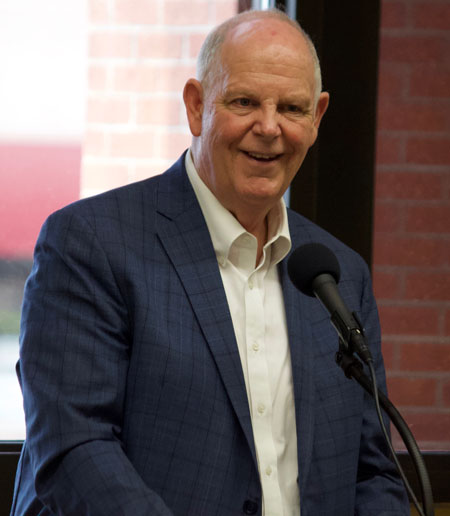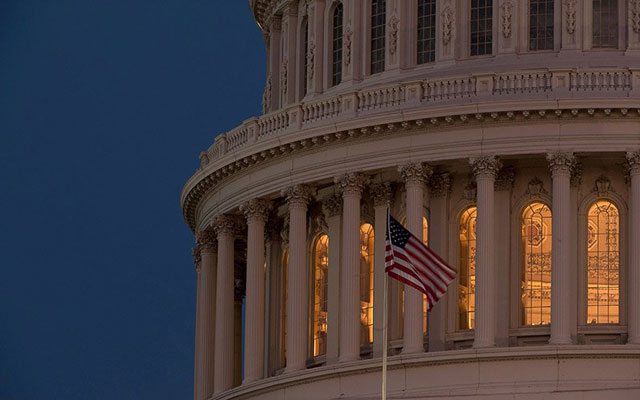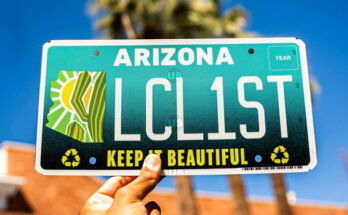Photo Courtesy Architect of the Capitol: House debate on the $1.9 trillion social spending bill known as the Build Back Better plan went from Thursday evening into Friday morning before it was passed, mostly along party lines. The measure still needs Senate approval.
By Simon Williams, Diannie Chavez, and Ulysse Bex/Cronkite News
WASHINGTON – The House on Friday approved the 10-year, roughly $1.9 trillion “Build Back Better” bill, a plan supporters say would extend tax credits, child care, health care, and more to tens of thousands of Arizonans.
The Arizona delegation split on party lines on the bill, which passed early Friday on a 220-213 vote. All Republicans opposed the bill, joined by just one Democrat, Rep. Jared Golden of Maine.
Republicans blasted the cost of the more than 2,000-page bill, which they said was packed with “far-left, socialist policies” that would add to the federal deficit and further drive up inflation.
“Our country is facing a fiscal crisis that could lead to a major financial downfall in the near future, and the Democrats’ multi-trillion dollar social spending bill puts us in the fast lane toward that tipping point,” said Rep. David Schweikert, R-Fountain Hills, in a tweet Friday.
But Friday’s vote came after House moderates got a Congressional Budget Office report that showed the bill would not significantly add to the federal deficit – a concern that delayed action two weeks ago when the House passed the administration’s $1.2 trillion infrastructure bill.
“I know that this legislation truly invests in the health and well-being of our children and in rural Arizona families and tribal communities,” said Rep. Tom O’Halleran, D-Sedona, one of the moderate Democrats who had expressed concerns about the potential price tag.
“This package brings long-overdue change to the systems we’ve undervalued for years, creating new jobs and opportunities for working Arizonans that will finally work to bring concrete solutions that deescalate the climate crisis,” O’Halleran’s statement said.
The vote, expected Thursday night, was delayed until Friday by House Minority Leader Kevin McCarthy’s record-breaking monologue that began at 8:38 p.m. and finally stopped at 5:10 a.m. His rambling speech touched on everything from immigration to the Carter administration, from China to Sputnik, but ultimately only delayed the inevitable.
The bill still has to go to the Senate, where Arizona Sen. Kyrsten Sinema has emerged as a key vote for Democrats, who need every vote to win final passage.
Friday’s vote came as House members were anxious to get out of town for their Thanksgiving recess, which House Speaker Nancy Pelosi set as a deadline when the bill stalled two weeks ago. That is when the moderate Democrats insisted on seeing a CBO “score” on the cost of the bill before voting.
The final piece of that score was delivered shortly before 6 p.m. Thursday, clearing the way for the late-night debate and Friday’s vote.
The CBO said the bill would add $367 billion from fiscal 2022 to 2031. But that number does not include at least $200 billion in additional taxes that are expected to be raised as a result of increased enforcement of tax laws by a beefed-up IRS.
The CBO estimate was also more optimistic than the White House had been projecting.
The bill approved Friday was a scaled-back version of President Joe Biden’s original proposal for a 10-year, $3.5 trillion plan that would cover everything from child care to Medicare, according to an administration fact sheet. It still achieves most of those goals, however.
In Arizona, according to White House estimates, the Build Back Better plan would expand health care coverage to 158,000 people who are currently uninsured and save hundreds of dollars in bills for 107,000 others. The bill will extend Medicare to cover hearing care for the first time.
The bill would also provide access to child care for about 430,000 children under age 5, expand access to free preschool for more than 134,000 children ages 3 and 4, extend the Child Tax Credit and result in up to $1,500 in Earned Income Tax Credits for 385,200 low-wage workers in the state.
Other funding would go to boost community college programs in “public health, child care, manufacturing, IT, and clean energy” sectors and expand the Pell Grant program, which assists low-income students. The White House said Arizona has 23 minority-serving institutions, the ninth-most in the U.S.
The Biden administration has insisted that the bill would be fully funded by taxes on corporations and the wealthiest individuals. The White House said the top 0.02% of American earners would face a 5% rate on income of $10 million or more, and those earning more than $25 million would pay an additional 3%.
Businesses based in the U.S. that have foreign operations would face a 15% minimum tax on overseas profits, “so that they can no longer claim huge tax benefits by shifting profits and jobs abroad,” the administration says.
But Republicans said the tax burden would be felt by all Americans, through higher inflation and through the stricter enforcement of tax laws by the IRS. They also pointed to an increased tax on natural gas, which they said would hit low-income earners the hardest, which comes as the price of gasoline has jumped.

“Only Democrats would cheer the passage of a bill that saddles Americans with more debt, taxes, and inflation,” said Rep. Andy Biggs, R-Gilbert, in a tweet referencing the Democratic applause on the floor after the bill passed Friday. “They’re in for a rude awakening come 2022.”
But five-term Rep. Ann Kirkpatrick, D-Tucson, called Friday’s vote “one of my proudest votes in Congress.”
“This legislation will be transformative and impact real working families in Arizona,” Kirkpatrick said in a statement. “It is a bill that exemplifies our democratic values and puts people first.
“Now the Senate must get to work, and we look forward to bringing it home to Arizonans,” Kirkpatrick said.
The bill that passed the House Friday was first vetted by the Senate parliamentarian to ensure that it qualifies as a budget reconciliation bill – which can pass with a simple majority instead of the 60 votes needed to head off a filibuster.
That is crucial in the Senate, which is evenly divided between Democrats and Republicans, with Vice President Kamala Harris holding the tie-breaking vote. It also strengthens the hand of Sinema and Sen. Joe Manchin, D-W.Va., the two moderates who expressed concerns about the cost of the original request and forced it to be trimmed to its current size.
It is unclear when the bill will advance in the Senate, which is also on recess next week.
Rep. Raul Grijalva, D-Tucson, called on the Senate to act quickly.
“When Democrats assumed the majority in Congress and won the presidency, the American public put their trust in us to make transformational changes for families across this nation,” Grijalva said in a statement Friday. “The Senate, including my home state senators, must act.”









